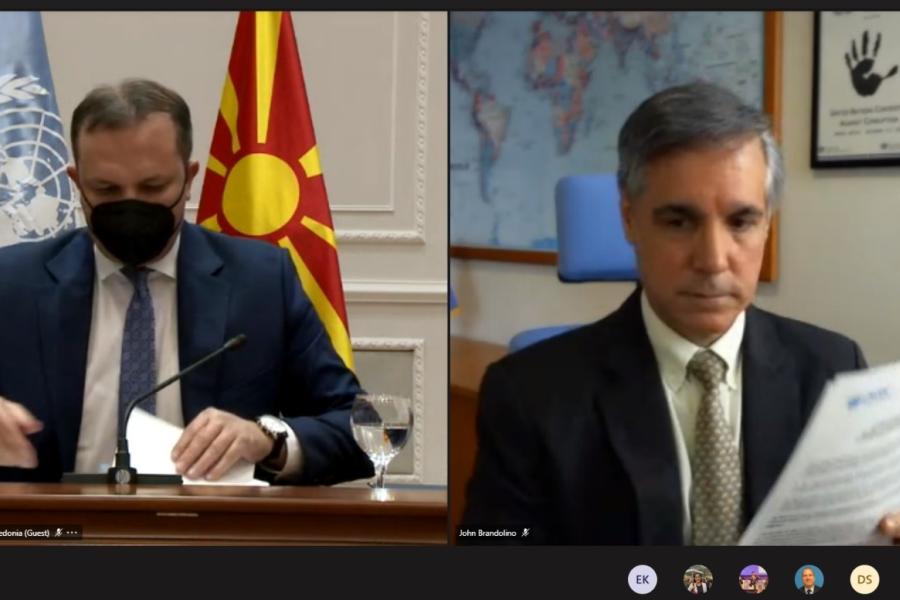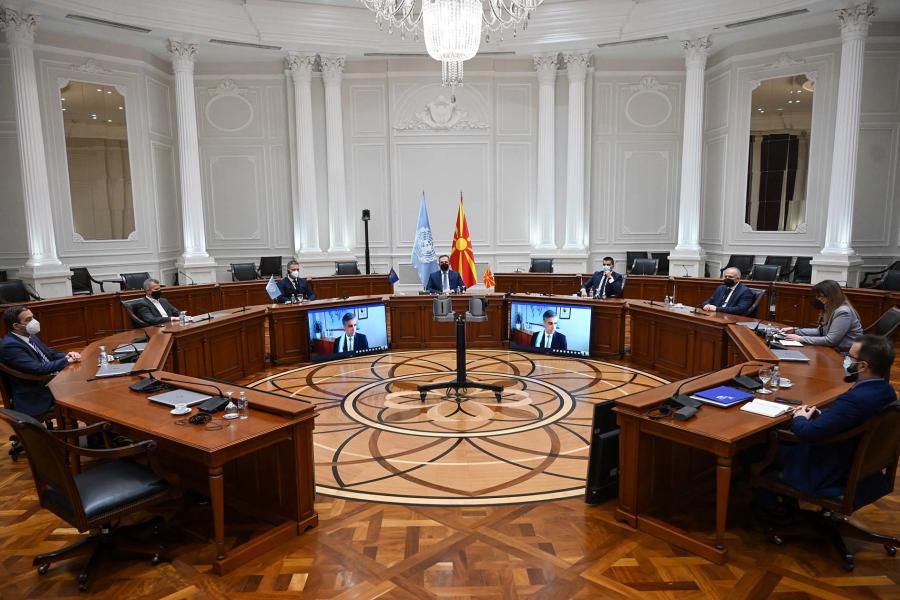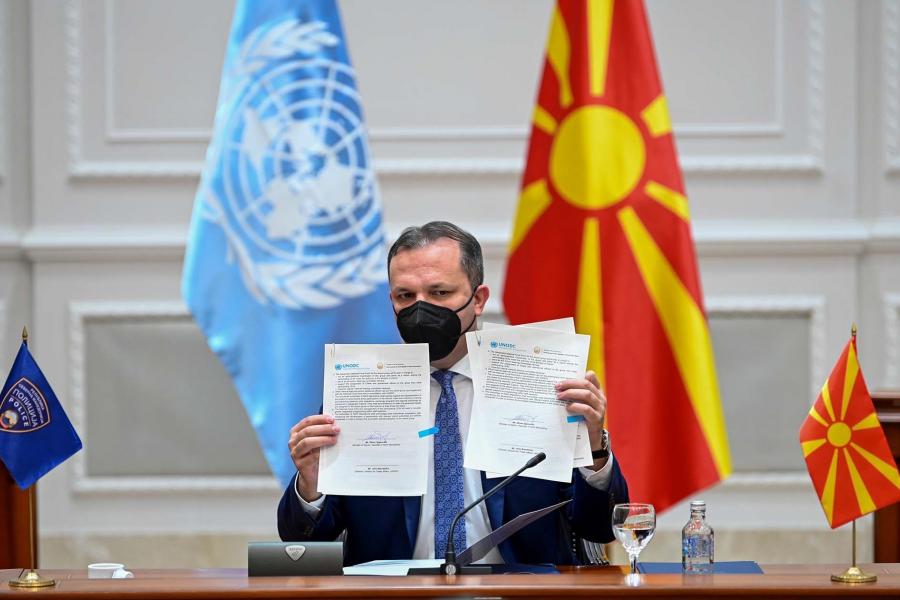UNODC and North Macedonia seal cooperation on enhanced border control in South Eastern Europe
27 janar 2021
- UNODC and the Minister of Interior of North Macedonia sign a Letter of Agreement on the establishment of a nationally owned airport inter-agency group at the Skopje International Airport sealing cooperation on enhanced border control in South Eastern Europe through the EU-UNODC joint action, funded by the European Union.
26 January 2020, Skopje, North Macedonia/online: According to reports of the UN, the EU and some of the regional organizations, the Western Balkans continue to face serious challenges from criminal networks engaged in the trafficking of controlled substances, firearms and persons, the smuggling of migrants, illicit financial flows, corruption, terrorism, and related threats. In part, this is to do with the region’s location as it constitutes the shortest corridor in the world between source and destination countries for heroin, and a prominent route from countries experiencing war and instability and European states that may offer international protection. These threats are interconnected as many of these crimes are being committed by specific organized crime groups that have diversified their operations over time and rely on land, air and maritime routes to conduct their criminal activities.
Against this backdrop, in January 2020 UNODC launched an EU-UNODC joint action on promoting rule of law and good governance through targeted border control measures at ports and airports, funded by the European Union and aimed at addressing all forms of trafficking and supporting the national and regional capacities to tackle this threat. The initiative is supporting more effective and coordinated responses to illicit trafficking at seaports, land border crossings and international airports in the Western Balkans to fight organized crime, namely in Bosnia and Herzegovina, Montenegro, North Macedonia, Serbia and Kosovo under UNSCR 1244.
The action is implemented through the cooperation with the UNODC-WCO Container Control Programme (CCP) and the UNODC-WCO-INTERPOL Airport Communication Project (AIRCOP) with the UNODC Regional Programme for South Eastern Europe. Despite the COVID-19 pandemic, UNODC continued the delivery of its activities and consultations with the authorities in the respective countries and jurisdictions to establish the necessary legal frameworks for the implementation of the action.

In North Macedonia, the Government represented by the Ministry of Interior and UNODC formally agreed to pursue cooperation in the area of enhanced border control in the framework of the EU-UNODC initiative by signing a joint Letter of Agreement (LoA), which stipulates that both entities agree on the implementation of the AIRCOP and the CCP in North Macedonia and in particular on the establishment of a nationally owned airport inter-agency group that will consist of a CCP Air Cargo Control Unit (ACCU) and an AIRCOP Joint Airport Interdiction Task Force (JAITF) at the Skopje International Airport.
The LoA was signed by Mr. Oliver Spasovski, the Minister of Interior of North Macedonia and Mr. John Brandolino, Director of the Division for Treaty Affairs of UNODC in the presence of Mr. Ljupcho Nikolovski, the Deputy Prime Minister of North Macedonia and Mr. Saso Tasevski, Director of Public Security Bureau of North Macedonia.
During the ceremony, the signees underlined the importance of such a commitment in the fight against cross-border movement of illicit goods and organized crime. The Minister of Interior expressed appreciation to UNODC for supporting the Government agencies through capacity building and stated that the LoA “reinforces the architecture of the fight against organized crime” in the country while the Director of the Division for Treaty Affairs reiterated UNODC’s readiness to support to North Macedonia in addressing cross-border illicit activity.
The signature of the LoA further supports the implementation of the UN Conventions on drugs and crime and the EU Acquis, notably Chapters 23 and 24 addressing serious organized crime, rule of law, good governance and security. This initiative improves effectiveness and develops synergies between law enforcement actors at the national, regional and international levels and builds bridges between various thematic areas, as well as between the Western Balkans and other regions, improving the security situation in the Western Balkans and Europe as a whole.





